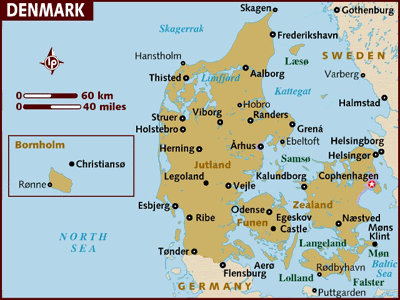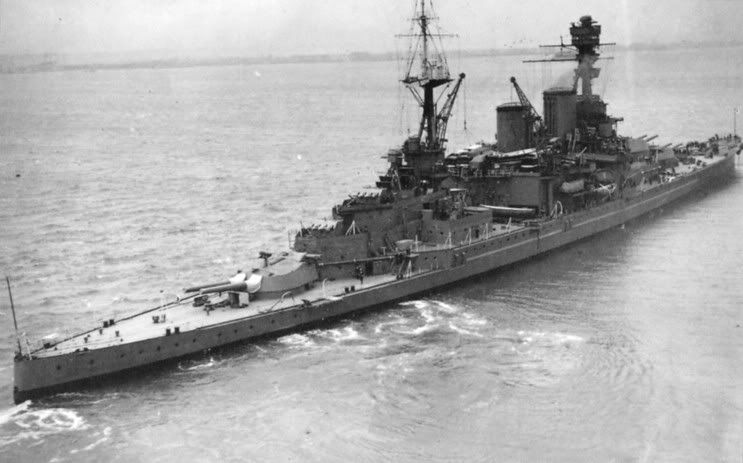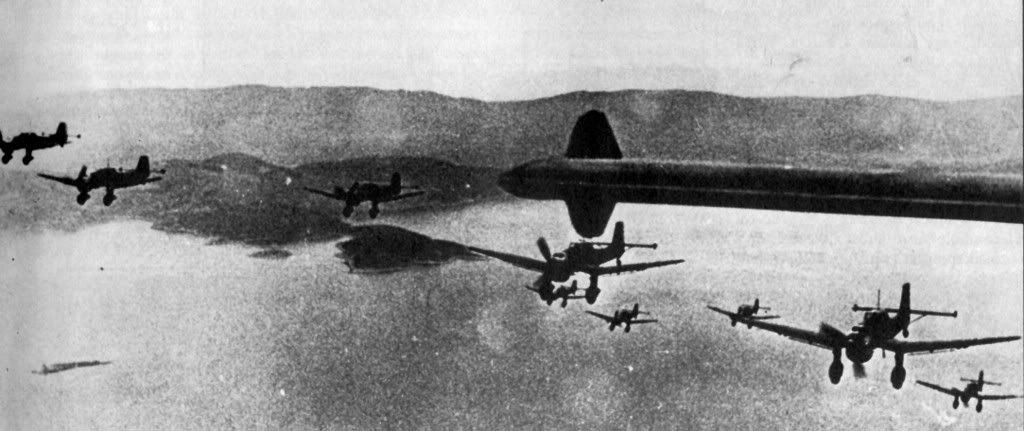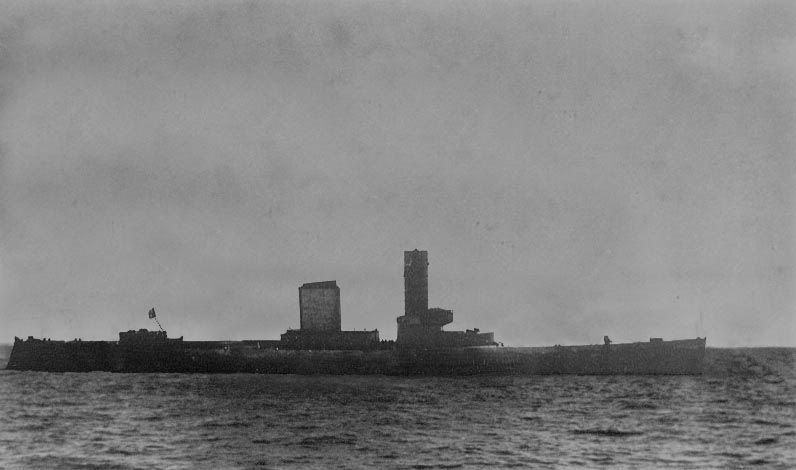Chapter III: Part XXV
Chapter III: The Lion’s Den
Part XXV
October 16, 1936
The Friday afternoon of October sixteenth brought blustery rain to Berlin, as the last embers of the Leopoldplatz Fire were finally extinguished. The capital city was tense going into the weekend, and a massive police presence was visible on the streets. The Reich Air Ministry Building was surrounded by Army guards, who stood along the sidewalk with bayonets fixed. In a spacious third floor conference room in the block of offices used by HKK, general staffers were filing in before the meeting scheduled for three fifteen.
Major Alexis Freiherr von Rönne, a thirty-three year old Baltic German staff officer, entered the room with a briefcase in one hand, and a thick stack of folders under the other arm. Sitting down near one end of the large oak conference table, he nodded professional greetings to the other officers as they took their seats around him: “Oberstleutnant Warlimont. Major Schadel-Korb. Oberstleutnant Blumentritt.”
In all there were ten staffers around the table. At any given time, two or three such sections were meeting somewhere in the huge building, each tasked with a different aspect of vital war-planning. The efficiency of these functions had increased considerably since HKK had assumed full responsibility for them, as Bayerlein managed to prevail upon Hitler to reinstate a number of capable staffers who had been forced out with the fall of General Beck.
A bristly-haired man in a Generalleutnant’s uniform entered from a side door. The officers rose as one and saluted. Returning the salute, newly-appointed HKK Deputy Chief of Planning Franz Halder sat down and called the meeting to order. He pulled from his briefcase a long cylindrical object and held it in the air. Major Babel was on his feet immediately, removing the cap to Halder’s container and pulling from it a rolled-up map, which he spread on the center of the table.
“Good day,” Halder said. “As you all know, the fire in Wedding has moved up our timetables for action in Scandinavia. To be blunt, the Government intended to carry out preventative occupations of Denmark and Norway over the winter anyway -- this just provides a convenient justification.”
“Quite so, Generalleutnant Halder,” said Oberst Felber, opening his folder. “We have drawn up revised drafts of the seven operations you specified last week. Operation Nordrache, the occupation of Denmark, and the first to be enacted; Operation Weiterrache, the occupation of Norway; Operation Säulesprung, the occupation of Jan Mayen; Operation Polarsprung, the occupation of Svalbard; Nebelsprung, the occupation of the Shetlands; Feissprung, the occupation of the Faroes; and Wikingsprung, the occupation of Iceland.”
“Well-done,” said Halder. “The latest planning timeline you should be working with is to have all of these operations achievable by early spring.”
“We shall work with that in mind,” Oberst Felber said. “Oberstleutnant Warlimont, if you would present the General Plan for Operation Nordrache.”
“Certainly.” Warlimont passed each man a copy of the document. “As you can see,” began the handsome lieutenant-colonel, gesturing to the map at the center of the table, “the primary problem facing us in operations in Denmark is that except for the lightly-defended Jutland peninsula itself, all of our objectives require the crossing of varying amounts of water.
“From this proceeds the difficulty of transport. Because of the short distances involved, we shall use a large fleet of barges and small powered craft for ferrying our first waves of troops onto the Danish islands. The pocket battleships and several of our destroyers will be used to protect the invasion force, and to provide covering fire -- which is essential, because if the Danish shore batteries are not knocked out early, they can cause serious damage as our ships come in without room to maneuver. More broadly, the simple fact that the Kriegsmarine will have little room to maneuver is a terror all to itself. During the opening phases of the operation, the pocket battleships will forced to operate in narrow waters, and thus vulnerable to shore batteries, submarines and hostile aircraft. Naval High Command is naturally very nervous about this arrangement, and especially about risking the big ships, but not much can be done about that.”
“How much air cover have you determined could be available?” asked Generalleutnant Halder.
“Between one and three Geschwader, depending on the outcome of the battle over Britain.”
“I see.” Halder sat there with his arms folded across his chest.
Warlimont continued: “To ensure a swift and certain outcome, the plan calls for a total of nineteen divisions. Thirteen of these will secure the peninsula, while the remaining six will secure the islands. Great efforts will be made to ensure that the buildup prior to the attack does not betray the size and disposition of our forces.”
“Good news, there,” Halder said. “The Reich Labor Service has allocated 30,000 workers to the construction of expanded rail lines directly linking our commands in Northern France and the Low Countries to those on the Danish border, to allow for quick and inconspicuous troop movement between the two.”
“Excellent,” Warlimont said. “Militarily, there are no significant man-made obstacles -- at least nothing on the scale of the defenses in Holland. And so it should be a relatively easy operation given the overwhelming force available to us.”
“Major von Rönne has drawn up the more specific operational plans,” said Felber, “and so we shall hear more about Nordrache shortly. For the moment, though, I’m sure General Halder would like to hear about the revisions to the operational plan for Norway. Oberstleutnant Blumentritt?”
The pudgy Bavarian passed around the latest version of Operation Weiterrache.
“With Denmark available for bases, we will prepare a rapid assault upon Norway. I have learned that it is the opinion of the Central Planning Staff that an occupation of Norway would be considerably more likely to result in British interference than the occupation of Denmark.”
“Quite true,” noted Halder.
“To that end, the transport of our forces to Norway will rely upon speed and surprise. Operation Weiterrache will rely upon our warships for much of its transportation capacity. We have already discussed with OKM the possibility -- and received its support -- to send across advance units on our fast destroyers and S-boats. Minesweepers and coastal defense vessels will be able to carry fifty to a hundred men each on the shorter journeys. Even the light cruisers
Köln,
Karlsruhe and
Emden have been made available, and can each carry the better part of an infantry battalion into Oslo Fjord. U-boats, too, will prove useful in putting ashore elite advance parties who can disable harbor defenses. In total, we will put ashore some five infantry regiments in the first phase of the offensive -- one each at Kristiansand, Stavanger and Bergen, and two at Oslo. In total, we anticipated that a total of five or six divisions, including several mountain regiments, may be needed for the pacification of the country.
“The initial capture of the harbors will be closely followed by airborne attacks behind the lines, including the taking of Oslo’s Fornebu Airport by glider troops. One possible extension of the plan even calls for a massive glider-borne assault as the first blow of the attack. Ju-52s would fly over Norway’s three most critical northern airfields at Trondheim, Narvik, and Tromsø at extreme range. They would release their gliders, and then circle the airfields on their remaining fuel until the assault pioneers had had a chance to secure runways for them to land on.”
Felber went on to call upon Babel, Fangohr, and Weyrich. In turn, they presented the plans for the seizure of Jan Mayen island, the Faroes and the Svalbard archipelago by small German forces. Halder seemed to recognize these landings as relatively unimportant, and pressed the general staffers for word about the Shetlands. This British-owned chain of islands less than 170 kilometers from the Scottish coat constituted the gateway into the North Atlantic. Major Schadel-Korb’s draft called for a small destroyer-borne force to land on the Isle of Noss, overlooking the islands’ main anchorage. The destroyers would drop off six 15 cm mountain guns and two 8.8 cm FlaK guns to provide the would-be garrison’s principal defense against British attempts to retake the island.
Halder seemed nonplussed. “British bombers would pose too great a threat. And I am worried about anything that takes place within just a few hours steaming from Scapa Flow.”
“Bad weather would be an advantage,” the major replied.
“It would, yes. Revise the plan to take that into account. Anything but conditions that would totally prevent aircraft sorties would be unacceptable. The sea states that would follow, though, would greatly complicate, if not preclude successful landings -- and so you must account for all of those variables.”
“What if,” Warlimont ventured, “we used the Shetlands as a deliberate ploy to draw the British heavy units out of Scapa Flow and Invergordon and into an ambush by a large number of U-boats? Even a few capital ships badly damaged would significantly even the balance of forces.”
von Rönne noticed that Halder’s eyes lit up at this, but his answer to Warlimont was noncommittal.
Oberst Felber then called upon the hawk-faced Major Plocher to brief Halder on the envisioned plan for occupying Iceland.
“The plan, Herr Generalleutnant, now calls for Iceland to be invaded last of all the islands. Our force assessments necessitate -- and I realize the difficulty in convincing the Kriegsmarine here -- unprecedented naval action. At least two of the pocket battleships would have to make as if to sortie to the south. Once the British believe that we have irretrievably committed the
Graf Spee and the
Admiral Scheer to battle, they will be unable to resist the opportunity to intercept them in hopes of knocking them out in a decisive blow. With the Royal Navy steaming to the south, our invasion force and its escorting cruisers can sprint from occupied Norway to the northeast coast of Iceland. There, they will disembark the 99. Gebirgsjäger Regiment, under Oberst Eduard Dietl. We then pull the pocket battleships back into port under air cover. Of course, no matter what, the Royal Navy will soon be free to cut off resupply to our men in Iceland. Our ability to hold the island will therefore hinge on how effectively we can rebase at least several Gruppen of fighters and bombers to Iceland.”
“Interesting, Major Plocher,” Halder said, “risky, but interesting. Of course much of that planning will hinge on the outcome of the preceding operations.” He stared intently at the map for several seconds. “What of the operational planning for Nordrache? The latest draft?”
Felber nodded. “If you would, then, Major von Rönne...”
“Yes, I, ehm --” Thin-lipped at bespectacled, von Rönne was ill at ease around his fellow officers, most of them ten years older and veterans of the last war. He was deeply religious -- well-read in theology and ethics, and versed in the writings of Christian philosophers in three languages. To his counterparts, he was a far cry from the hardened ideal of Prussian soldiery. Nonetheless, he had been recognized by his superiors for brilliance in staff assignments, and promoted early to Major just six weeks earlier. Feeling the eyes of the others raking him, von Rönne mumbled an apology and distributed copies of the operational plan.
Geography of Denmark.
“The plan, as Oberstleutnant Warlimont noted, calls for nineteen divisions total. The thirteen divisions driving up the peninsula would be grouped into XX, XXI, XXII and XXIII Armeekorps. We would form XXIX and XXX Armeekorps for the island operations and the capture of Copenhagen.” He stood over the map, tracing with his finger the doom to befall Denmark. “XX Armeekorps will drive straight for Aalborg in the far north. It will also be responsible for the exact center of the Danish border at the start of the offensive. XXI Armeekorps will secure Aarhus and the eastern coastline. XXII Armeekorps will take Esbjerg and the North Sea Coast, as well as the Wadden Sea islands. Finally, we shall devote XXIII Armeekorps to the fortified area of Sønderborg near the border, and cleaning up the heights that overlook the water where our shipping will mass. At the same time, XXIX and XXX Armeekorps will converge on Copenhagen -- the former from the Oresund and the latter across the west coast of the island of Sjælland to cut off the city from the inland side. The high density of forces in the operating area both ensures swift progress and provides practice for similar operations in the future. The plan calls for limited use of glider troops at the start of the attack to cause confusion and bring about a collapse of organized resistance. I have additionally allowed in my planning for only minor bombing by the Luftwaffe, because I have been unaware of what would be authorized and what could be spared from Britain.”
“From what I know, Major,” Halder said, “the Government will exploit this fire politically in the coming weeks in order to establish
casus belli. This culminates in an ultimatum before any invasion starts. If the Danish king refuses to stand down his forces, then I do believe the Führer would be willing to go in fully, so to speak, until victory is achieved. As for the physical availability of planes, that will again depend on the progress of the air campaign.
“Planning is going forward rapidly for strategic diversions along the Channel. The British must be made to believe in the possibility of cross-channel raids or even a full-scale invasion of the Home Islands if they weaken their defenses for allocation elsewhere. We shall make show of gathering some forces in the Channel ports, and already are conducting staff planning for invasion scenarios so as to maintain a credible threat. The goal, of course, is that this allows us a free rein in Scandinavia through the winter. If those operations are successful, Britain will lose control of the North Atlantic, and probably sue for peace without a need for riskier actions against the British Isles themselves.” Halder jotted several notes in the margins of one of the documents.
“In sum, I am ready to sign off on the drafts for Operations Nordrache and Weiterrache. I would like to see further revisions on the rest pursuant to the notes I’ve given. Planning for Denmark especially can go forward now, pursuant to Major von Rönne’s draft. Anything further, gentlemen?”
Oberst Felber spoke for all of them: “No, Generalleutnant Halder.”
Halder handed von Rönne the signed copy of Operation Nordrache, and called the meeting at an end. The officers saluted, and filed out of the conference room. von Rönne clutched the Nordrache dossier close to his chest and paced briskly down a series of corridors leading toward his small office. Dodging busy staffers and roving Luftwaffe bureaucrats, he found his way to the door and entered. He turned on the lights and looked over the room. His uncluttered desk and the unadorned chair behind it took up most of the floor space, and file cabinets filled two of the walls. Removing his overcoat, von Rönne hung it next to the door, which he closed and locked.
Sitting down in his chair, he brought his eyes over his whole desk to ensure that everything was in order. From an inner breast pocket, von Rönne drew a small key and slipped it into the lock on the second drawer on his right. He turned the key, but held it there for several seconds. The only sound was rain lashing against his window. He pulled the drawer open. A large wooden box filled almost the entire space, its surface printed with the image of a boy on a ladder leaning up to admire a girl on a balcony -- and the words
Romeo y Julieta - Habana. von Rönne slipped his fingers into the space around the box and prised it out of the drawer. He set the heavy box gently upon his desk and opened the tiny brass latches. Barely breathing, he lifted the lid.
Two rows of fifteen dark brown cigars saw the light. von Rönne swallowed. He felt with his index fingers along the bottom of the box’s brass latches and pulled upward. Nothing. He opened his top drawer and withdrew a thin, enameled penknife. This he slipped under one of the latches, and forced the point up. There was a slight give. He worked the other latch similarly, and was at last able to lift out the wooden panel that contained the cigars from its snug lodging, and set it down on the desk to the right of the box.
He could now see a small printed booklet lying atop a pad of green felt. von Rönne carefully set the booklet down to the left of the box, and then lifted out the felt pad. A radio transmitter was now visible within the box. He froze as a dark shape became visible through the frosted glass of his office door. It didn’t move. He slammed the lid shut and waited. He counted off ten seconds, and the shadow passed from sight. He opened the lid again, and picked up the booklet. It was printed in German, and he opened to its first page to confirm that all the parts were in order. von Rönne plugged in the power cord, and set the antenna against his north-facing window.
He found the code on the booklet’s second page. At last, he opened the Operation Nordrache dossier and set it on his lap. Bringing the headset to his ears, von Rönne selected the appointed frequency, tested power and began to transmit.
By the next morning, an outline entitled
German War Plan Denmark: ‘Operation Northern Vengeance’ was on the desk of the British SIS chief in London.






